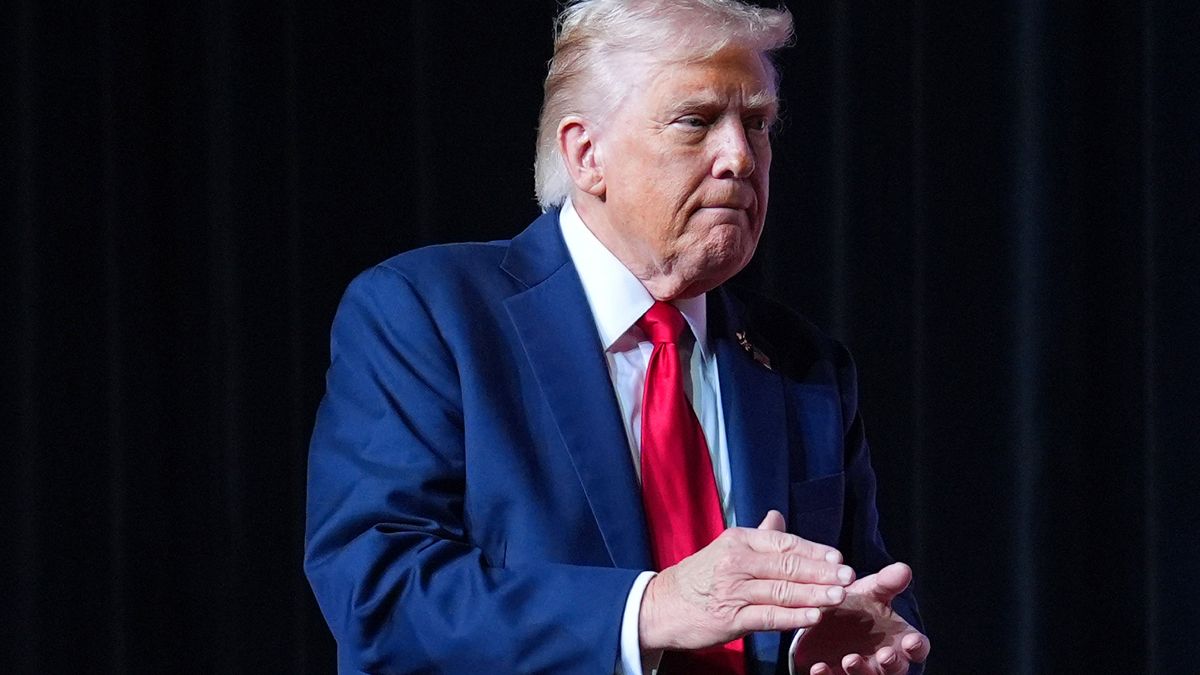The Trump administration is turning to the military’s legal corps to staff the nation’s immigration courts, a move that has alarmed legal experts, immigrant advocates and some lawmakers.
Under the plan, Army Reserve and National Guard lawyers will temporarily serve as immigration judges after the firing or departure of more than 100 sitting judges, raising questions about training, due process and the potential militarisation of a civilian legal process.
The plan
Training for the first group of Army lawyers begins Monday, with a second group scheduled to start in the spring, according to several former and current military reserve lawyers. Roughly 100 Army Reserve attorneys are expected to take part, with 50 beginning six-month assignments after training, according to a September 3 email reviewed by the Associated Press.
The administration ultimately hopes to bring in up to 600 military-trained attorneys to hear cases, effectively doubling the number of current immigration judges. The move comes amid ballooning backlogs 3.4 million pending cases, up from 1.5 million four years ago as the Trump administration ramps up immigration arrests.
An internal Army Reserve Legal Command email cast the plan as “an opportunity to gain judicial experience in a high tempo, nationally significant setting.” Both the Army and National Guard have sought volunteers.
Why it’s a concern
Critics argue that the plan risks undermining due process in one of the most complex areas of American law.
Lack of experience: “They’re letting a lot of experienced judges go, terminating them with no notice, and yet they claim there’s a shortage,” said Margaret Stock, a retired Army lieutenant colonel and immigration lawyer. “Immigration law is super technical and complicated. It’s worse than tax law, and it’s constantly changing.”
No prior requirements: In the past, temporary immigration judges needed 10 years of immigration experience and were often retired judges. The new plan does not require expertise in immigration or administrative law.
Training gaps: Military lawyers, known as JAGs undergo only two months of military law training. While highly skilled in areas such as courts-martial or national security law, they are not specialists in asylum cases or deportation hearings that carry life-or-death stakes.
Impact Shorts
More ShortsImpact on courts: Matt Biggs, President of a federal employee union representing immigration judges, warned that “tapping lawyers with little or no immigration experience… will lead to more appeals of decisions. It will further increase the backlog. It’s going to be an inefficient and costly endeavour.”
The broader context
The administration has increasingly drawn on the military to support its immigration crackdown from deploying troops to the US-Mexico border to housing detainees on military bases. Now, military lawyers are being asked to step into civilian courts.
Supporters argue this is a practical response to shortages. “They are some of the greatest lawyers you’ll meet in the national security world,” said Mark Nevitt, a former Navy JAG and law professor. Others, like former Army lawyer Greg Rinckey, argue JAGs will not simply rubber-stamp deportations: “Most of us have served as defense counsel. We’re not all government hacks.”
Legal and political pushback
Some Democratic lawmakers question whether the plan violates the Posse Comitatus Act, which prohibits the military from performing law enforcement duties. A Pentagon memo says the six-month appointments will be structured to avoid legal conflicts, with the Justice Department responsible for ensuring compliance.
Still, Democrats have demanded clarity on where the lawyers will come from, whether the military justice system will be weakened by their absence, and what protections will exist to prevent political pressure from influencing judicial decisions.
Gregory Chen of the American Immigration Lawyers Association said the Justice Department was “watering down the qualifications of those it will empower to make life-or-death decisions.” He also warned that temporary hires may be more vulnerable to political influence since permanent judges enjoy civil service protections.
What it means
The plan reflects both the scale of the immigration backlog and the administration’s willingness to reshape institutions to meet policy goals. But experts fear that assigning undertrained military attorneys to adjudicate asylum and deportation cases risks weakening confidence in the courts, heightening appeals, and ultimately delaying justice further.
“It sets a dangerous precedent in this country when it comes to due process protections,” Biggs said.
For the reservists who do step in, the assignment may offer career opportunities and exposure to complex legal issues. For immigrant families whose futures hinge on those rulings, the consequences could be far more profound.
)